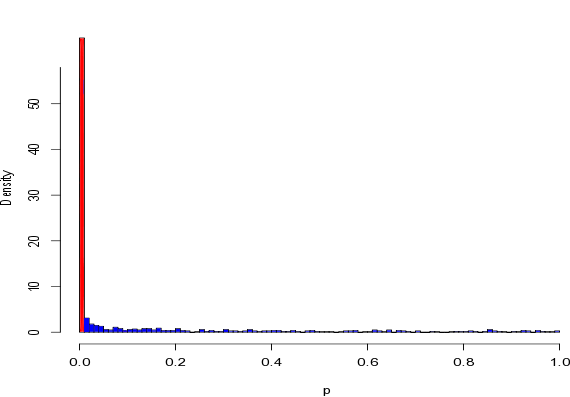Out in the PNAS Early Edition is a letter to the editor from four Genomes Unzipped authors (Luke, Joe, Daniel and Jeff). We report that we found a statistical error that drove the seemly highly significant association between polymorphisms in the OXTR gene and prosocial behaviour. The original study involved a sample of 23 people, each of whom had their prosociality rated 116 times (giving a total of 2668 observations), but the authors inadvertantly used a method that implicitly assumed there were actually 2668 different individuals in the study.
The authors kindly provided us with the raw data, and we ran what are called “null simulations” on their dataset to check to see whether their method could generate false positives. This involved randomly swapping around the genotypes of the 23 individuals, and then analysing these randomised datasets using the same statistical method as the paper. These “null datasets” are random, and have no real association between prosociality and OXTR genotype, so if the author’s method was working properly it would almost never find an association in these datasets. The plot below shows the distribution of the “p-value” from the author’s method in the null datasets – if everything was working properly all of the bars would be the same size:
Continue reading ‘Misapplied statistics in the OXTR/Prosociality story’


 RSS
RSS Twitter
Twitter
Recent Comments